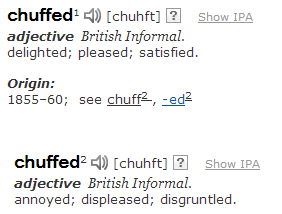#contronyms
Explore tagged Tumblr posts
Text
Writing Notes: Contronyms
Contronym
A word that has two meanings that are opposite or nearly opposite.
Example: Left means both “leave” (two people had left) and “remain” (How many people are left?), which are antonyms.
An antonym is a word that is opposite in meaning to another.
Contronyms are also known as Janus words.
Janus was an ancient Roman god with two faces that looked in opposite directions.
Another term for these words is auto-antonym, or a word that means the opposite of itself.
Technical terms for this phenomenon are enantiosemy, enantionymy, or antilogy.
Examples of Contronyms
Cleave
Comes from two different Old English words, clēofan and cleofian, which is how it got these two opposite meanings.
Cleave: to split, to separate (Owen swung the axe down hard in order to cleave the log into two even pieces.)
Cleave: to adhere closely, to stick (Young beaver pups cleave to their mother in the water until they are strong enough to swim on their own.)
Dust
When used as a verb, is a contronym.
Dust: to wipe the dust from (Every Saturday, he would dust the nicknacks on the bookshelves to keep them clean.)
Dust: to sprinkle with a powder or dust (The baker liked to dust their pumpkin bread with just a sprinkle of cinnamon.)
Overlook
Overlook: to fail to notice, perceive, or consider (I hadn’t finished the last two homework questions, but I hoped my teacher would overlook it and give me full marks anyway.)
Overlook: to look after, oversee, or supervise (The manager was required to personally overlook the transfer of valuable materials every evening.)
Sanction
Sanction: to authorize, approve, or allow (My parents wouldn’t sanction video games in our home because they thought they were too violent.)
Sanction: to penalize (The school said they were going to sanction the students for arriving late to class.)
Weather
The word weather is a contronym, but only when used as a verb.
Weather: to expose to the weather, to disintegrate (The paint on the house was chipped and weathered from the decades of rain and snow.)
Weather: to endure (We weren’t sure that we would be able to weather the storm if we didn’t find shelter.)
Back Up
Back up: to support (Ultimately, the scientists were unable to back up their claims with hard evidence.)
Back up: to retreat (The zebras backed up when they spotted the alligators in the water.)
Fine
The adjective fine has the potential to lead to some real misunderstandings about just how excellent (or not) something is.
Fine: of superior or best quality (To prepare for the Queen’s visit, the household staff cleaned the fine linens and polished the best silver.)
Fine (informal): satisfactorily, acceptably (Sandra thought her performance was fine, but nothing special, so she was surprised when she won second place.)
Original
The adjective original is an example of a contronym.
Original: belonging to the beginning of something (Despite being hundreds of years old, the painting was still in its original frame.)
Original: new, fresh, inventive (While sitting in the bathtub, the inventor was struck with an original idea.)
Pitted
The contronym pitted often causes confusion at the grocery store.
Pitted: having pits; in the sense of “mark or indent” (The sailor’s face was pitted and craggy from the wind and salt water.)
Pitted: having the pit removed; in the sense of “stone of a fruit” (My mom reminded me to buy the pitted cherries, because she didn’t want to take out the stones herself.)
Bound
Bound is an example of a contronym that has two different meanings because it actually has two different etymologies. The first meaning comes from the Old English bindan. The second meaning comes from the Old Norse būinn, “to get ready.”
Bound: tied, fastened or secured with a band or bond (The Mountie rushed to save the woman who was bound to the railroad tracks.)
Bound: going or intending to go, destined [for] (With all of their talents, the band was bound to be a success.)
Source ⚜ More: Basics & Refreshers ⚜ Writing Resources PDFs
#contronyms#words#vocabulary#writeblr#writing reference#spilled ink#creative writing#dark academia#writers on tumblr#langblr#poets on tumblr#poetry#literature#writing tips#writing prompt#writing#lit#studyblr#light academia#writing resources
200 notes
·
View notes
Text

⚠️ Many words in English have contradictory meanings, e.g., “sanction” = ‘to allow’ or ‘to prohibit.’
Others include “clip” (to cut 💇🏻; to attach 📎) and “bolt” (to fasten in place 🔩; to run away 🏃🏻♀️💨).
Such contradictory words are called by many names: Janus words, autoantonyms, and contronyms.
💁🏻♂️ When you write or speak, give your audience the necessary context to distinguish which meaning you are using.

Website | Twitter | Instagram | Medium | Pinterest | Ko-fi | eBook
6 notes
·
View notes
Text
Weathering sanctions
Apology left fast bound
Cleaving boundless bolts
🙂 🙃

2 notes
·
View notes
Text
Something not fandom-related this time:
Have you seen that post about contronyms floating around here somewhere? (If you haven’t, here’s the definition of a contronym.)
The post says that “literally” has become a contronym with its modern use. Upon reflecting on this, although I initially disagreed, I think I now do agree, BUT I think there’s an important distinction to make. Here’s my reasoning:
We might say “ugh, I’ve been waiting for years!”
I think we can agree that this sentence means “I’ve been waiting for a comparatively long time”, and NOT “I have been waiting 365 days multiple times over”, right?
The use of “for years” there is a hyperbole. The modern use of “literally” is very similar: in the sentence “I literally almost died” we usually want to accentuate the gravity of the situation, but without implying that we did, in fact, almost die.
So, what’s the difference? Why is “a comparatively long time” not listed as a meaning of “years”, whereas “figuratively” IS listed for “literally”? It’s because “for years” in that first sentence is still easily recognisable as a figure of speech, whereas “literally” isn’t anymore. A word gains a new meaning when its use in that way is so widespread as to become closely linked to the word, in a way that makes it so we need the new meaning added to the dictionary if we want an English-learner to properly learn to understand the language.
So: “literally” isn’t a contronym simply because it is used as a hyperbole, but because that hyperbole is used almost more than the actual meaning of the word, making it so that it is barely distinguishable as a figure of speech anymore, and instead is moreso perceived and intepreted by our minds as a different meaning of the word.
I know this is incredibly nitpicky and unimportant, but I figured why not talk about it anyways and get it off my chest? This has been “Amateur Takes on Linguistics with Raccoon”, thanks for tuning in :)
#linguistics#contronyms#hyperbole#this is so insignificant why tf did I feel the need to talk about it help
2 notes
·
View notes
Text
@toawk
“chuffed doesnt mean what you think it means”

it means exactly what i think it means its just some stupid word that literally has two definitions that mean the opposite thing
784K notes
·
View notes
Text
Huh. Although I was aware of moot’s discussion-worthy meanings (e.g., ‘moot court’ or ‘to moot a course of action’), which are in limited use in the US (especially outside of law), I was completely unaware that common US idioms for irrelevance like ‘a moot point’ or ‘made it moot’ can actually carry the opposite (discussion-worthy) meaning as well!
Tell us in the tags where you’re from or what form of English you’re most familiar with!
1 note
·
View note
Text
Clearing up misconceptions abt DE 🇪🇺🇩🇪
Let me clear up some misconceptions about Germany — and specifically ones that are spread by Germans themselves:
No voter registration needed?
Wherever the abyssal election conditions in the USA are looked upon, the comments section will mention how over here we don't need to go register to vote; all eligible voters just get the election notification in their mail.
If you're German, then that's how you experience it, right? If you're American, think about this: how could the government send documents to every citizen of voting age and not forget anyone, and not send duplicates to anyone, even when they have moved from one state to another? And don't just say that the government is incompetent. How would a competent government do that? They can't. They don't know reliably where everyone lives.
So how does our government do it? With voter registration. So, no, we don't register specifically for voting. But we have mandatory registration for a bunch of purposes, including voting. We update the registry whenever we move to a new address, regardless of elections. So people don't think of it as voter registration, but that still is part of it. And you can't pick and choose which purposes you actually want to be in the registry for and which you'd rather skip.
The USA don't have any existing registry like that. And I can't imagine that you would want that.
What's true, however is that we vote on Sundays and have enough polling places that there won't be waiting times longer than a few minutes.
But voter ID?
On that topic someone will usually note that Germany has voter ID though.
Ah, yes, in the election notification letter it always says that I should bring my ID card or travel passport. But you know what?
I've never had to show my ID at the polling place. I'm asked to bring one, just in case. But the letter was always enough. They cross me off their list and let me vote.
Also note that it's not anything wacky, like a weapons license, but my ID card or travel passport. You know what those two documents have in common? They are issued by the federal government and are printed based on the same registration data that is used to issue my election notification and send it to me. So the spelling of my name on my ID card and on my travel passport ought to match exactly that in the voter list, because they are taken from the same database. But, again, I never had to actually show my ID, only bring one along, just in case.
‘umfahren’ confusion?
Have you heard that ‘umfahren’ (unstressed um-) means ‘to drive around’ and ‘umfahren’ (stressed um-) means ‘to run over’, and they're written the exact same and differ only in syllable stress?
Well, the spelling of the infinitives is identical. That much is true. But otherwise the words are more distinct.
Imperative:
umfahre es — vs — fahre es um
Preterit:
ich umfuhr es — vs — ich fuhr es um
Past perfect:
ich habe es umfahren — vs — ich habe es umgefahren
And how often would you use the infinitive in a sentence in real life?
Furthermore, the widely repeated translation is inaccurate.
‘jmd./etw. überfahren’ means ‘to run s-b./sth. over’
‘jmd./etw. anfahren’ means ‘to hit s-b./sth. with a driving vehicle’
‘jmd./etw. umfahren’ (stressed um-) means ‘to topple s-b./sth. over by hitting them/it with a driving vehicle’
And ‘überfahren’ is the word that is more often colloquially misused when it's not technically accurate. The specific term ‘umfahren’ is not used as often as you may have thought when you heard the inaccurate translation.
Because tsunamis?
There's a strawman talking point claiming that because a nuclear accident in Japan was caused by a tsunami, Germany — that doesn't experience tsunamis — decided to quit nuclear power, which doesn't make sense. … Things tend to make no sense when you're missing the point.
Japan is at the junction of four tectonic plates. They experience earthquakes with some regularity, which at the ocean can cause tsunamis. And Japan is a technologically highly advanced nation.
The point isn't: «oh no, what if a tsunami hits a nuclear power plant?» The point is that this was to be expected and Japan was supposed to be prepared for it. They should have been able to safely power down the reactor but ended up in a situation in which that wasn't possible any more.
The same chain of events couldn't unfold here. But that same outcome shouldn't have been possible there. So how could we be confident that it wouldn't happen here under any circumstances?
#deutschland#deutsche sprache#germany#that's not how it works#voting#elections#voter id#nuclear energy#nuclear power#contronyms#pseudocontronym
1 note
·
View note
Text
Words that also mean their opposite drive me nuts because it means you just can't use them:
Nonplussed
Peruse
Overlook
Sanction
#mine#contronyms#words#grammar#language#english#reposting everything from my twitter feed#i'm about to delete everything so get it while it's hot#tweet: 2019
1 note
·
View note
Text
German has the word "umfahren" which, written down without any context and presented in its infinitive form, can both mean 'to run over' (1) or 'to go around sth., to bypass' (2)
The difference only becomes clear in spoken language through stress: úmfahren (1) vs. umfáhren (2), or through conjugation: 'Ich fahre das Straßenschild um' ('I run the road sign over') vs. 'Ich umfahre das Schild' ('I go around the road sign sign')
isn’t it weird how, in English, if u said:
“I got a $100 bill in the mail.”
the audience doesn’t know if you made money or lost money?
like did i get a good bill or a bad bill? how do we have one word with 2 literally opposite meanings??
45 notes
·
View notes
Text












#jujutsu kaisen#jjkedit#dailyanimatedgifs#shounenedit#anisource#fyanimegifs#hyeahjujutsu#my jjk#my gifs#gifs; jjk#long post#mai zenin#maki zenin#sisters#another longish scene i wanted to gif before#uugh struggled with the tl#mai uses a contronym “tekitou” which can mean either “properly” or “casually”#was confused about which gege meant#then realized it was probably on purpose#has more impact in japanese since they sound the same obvi#the repetition for emphasis is one of my favorite things about gege's writing#ah well#my translations
125 notes
·
View notes
Text
TMA S5 spoilers
Headcanon: after the apocalypse a psychologist was one of the most demanded professions. Eventually they started to specialise in the Fears: a Spiral psychologist, a Lonely psychologist, etc
#psychologist was a such commoly used word#they just reduced it to “psycho”#“psycho” became a contronym#tma#tmagp#mag 200#the magnus archives#headcanon
46 notes
·
View notes
Text

⚠️🤯 Many words in English have contradictory meanings.
For example,
CLIP = fasten together 🖇️; cut apart ✂️
Here’s a list of other autoantonyms (aka contronyms, Janus words).

Website | Twitter | Instagram | Medium | Pinterest | Ko-fi | eBook
24 notes
·
View notes
Text
A contronym! A word with two opposite meanings.
Thought I definitely think of the second definition first. The “non” prefix usually means to negate the definition of the second part.

For real.
245 notes
·
View notes
Text
I know what they mean, but what it says is the same as a restaurant with a sign in the window saying ’no eating’.

3 notes
·
View notes
Text
pals (friendly acquaintances i'm too scared to call my friends) vs pals (my bestest friends in the whole entire world)
15 notes
·
View notes
Text
don't get me started on "peruse"

you know when somebody says this that they mean either a short amount of time, a long amount of time, or maybe just neither
#then I made the mistake of looking up contronyms#SO MANY OF THESE I KNOW BUT HADN'T THOUGHT ABOUT AUGH#sanguine's fun tho
104K notes
·
View notes